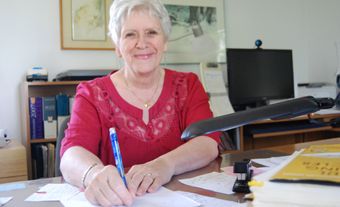Hubert Aquin, novelist (born 24 October 1929 in Montréal, QC; died 15 March 1977 in Montréal). Best known for his four complex modernist novels, Aquin also influenced contemporary Québec culture as a political activist, essayist, filmmaker and editor. Brilliant, tormented and deeply committed to a Québec whose contradictions he seemed to embody, Aquin had a flair for drama and public gesture; he once declared: "It is my life that will turn out to have been my super-masterpiece."
Education and Early Career
Aquin received a licentiate in philosophy from Université de Montréal in 1951. From 1951 to 1954 he studied at the Institut d'études politiques in Paris and on his return to Montréal worked for Radio-Canada (1955–59). From 1960 to 1968 he was a colourful and influential figure in the growing movement for Québec independence. While supporting himself by work at the Montréal Stock Exchange (1960–64) and the National Film Board (1959–63), he was an executive member of the first independentist political party, the Rassemblement pour l'indépendance nationale (RIN), 1960–69. During the same period, as an editor of Liberté, he engaged in debate with Pierre Trudeau on the question of Québec independence. In 1964 he declared in a press release that he was going "underground" to work for independence through terrorism; he was arrested shortly afterwards and detained four months in a psychiatric institute, where he wrote his first novel, Prochain épisode (1965), the story of an imprisoned revolutionary. In December 1964, he was acquitted of illegal possession of a firearm.
Novels
The publication of Prochain épisode established Aquin as perhaps the most important cultural figure in Québec of his generation, but he continued to assert his inability to compromise with any established order. In 1966 he was expelled from Switzerland and wrote that the expulsion was due to RCMP influence. In 1969 he became the first Québec writer to refuse the Governor General's Award, offered to him for Trou de mémoire (1968). In the same year he denounced Pierre Bourgault's decision to merge the RIN with René Lévesque's Mouvement pour la souverainté-association and resigned from the party.
The Last years
The following years seem to have been marked by a growing despair linked to Aquin's sense of separation from the political centre of his beloved Québec. In 1969 he published L'Antiphonaire, which unlike his previous two novels has no explicit political content. In 1971 he resigned from the editorial board of Liberté, claiming that its reliance on Canada Council support had kept it silent on the events of the October Crisis of the previous year. In 1974 Aquin's final novel appeared, Neige noire, a modern version of Hamlet integrating film, music and painting techniques into its sustained philosophical reflection on time, love, death and the sacred.
In March 1975, he became literary director of Éditions La Presse, a position which because of its links with Power Corporation was seen by some as a contradiction of his earlier "revolutionary" stance. But Aquin had always claimed he became a revolutionary because as a Québécois he was denied the opportunity of being a banker, and his time at Éditions La Presse was marked by conflict over money he wanted to invest in "unprofitable" Québec literary ventures. In August 1976 he resigned, accusing his superior, Roger Lemelin, of "colonizing Québec from the interior," and entered a period of financial insecurity and severe depression, which ended in his suicide.

 Share on Facebook
Share on Facebook Share on X
Share on X Share by Email
Share by Email Share on Google Classroom
Share on Google Classroom

